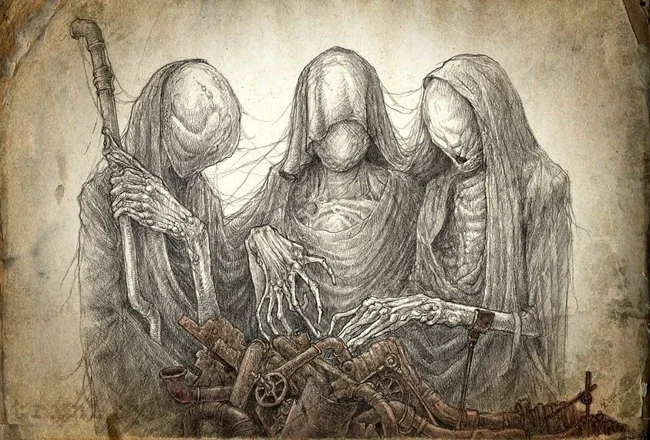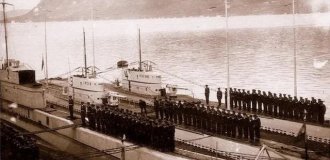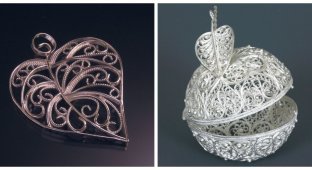Who were the terrifying Fates that even Zeus feared? (10 photos)
The pantheon of Greek gods was a noisy and passionate chaos: Zeus hurled lightning bolts, Hera was jealous, Ares thirsted for blood, and Aphrodite sowed love. But above this entire world, high up, in inaccessible chambers, silence reigned. Here, in complete silence, three sisters held court, before whose authority all bowed—from mortals to the Thunderer himself. They were called the Moirai—the inexorable goddesses of fate. 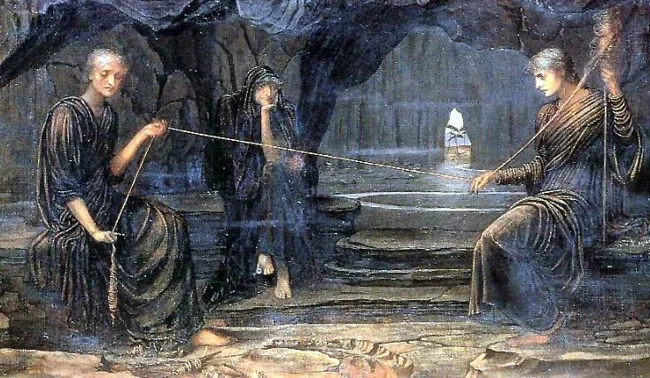
Imagine a vast spinning loom on which the fabric of all existence is spun. Each life is a separate thread, intertwined with others. This process is orchestrated by three eternal spinners. Clotho (the Spinner) is the youngest of the sisters. She guards the funnel of pure, unspun wool and spins the thread of life. Her decision is birth. In her hands lies the beginning of every destiny, every being. One wave of her hand, and a new thread is born. 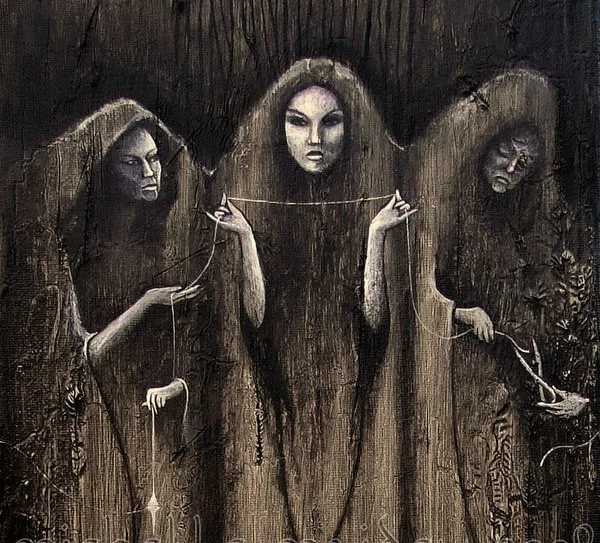
Lachesis (the Lot Giver) is the middle sister. She measures the length of the thread, meaning she determines the lifespan and all the major events that befall a person or a god. Lachesis doesn't simply measure out the fates; she casts lots, distributing fortunes and misfortunes, refusing to be persuaded. 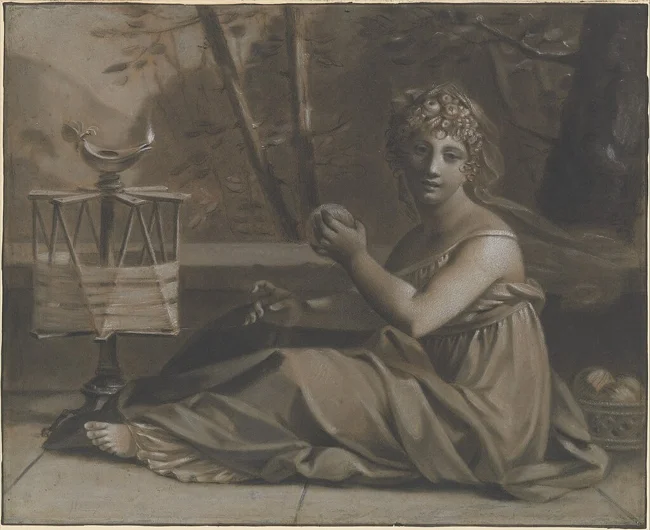
Atropos (Inevitable) is the eldest and most fearsome. In her hands are enormous scissors. She cuts the thread of life, and her decision is irreversible. Once Atropos has swung, the end is sealed. No one and nothing can stop her hand. 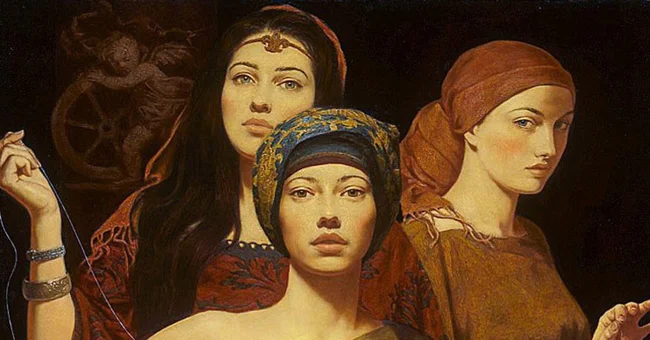
Their names are the very essence of inevitability. The fate they determine was called "moira" in ancient Greek, meaning "share," "destiny." And everyone, from beggar to king, every river and every tree, had their own predetermined moira.
Even Zeus himself, the one who overthrew the Titans and established his own order, feared them. It would seem, should he fear three old women with a spinning wheel? But the Moirai were older than the Thunderer himself... 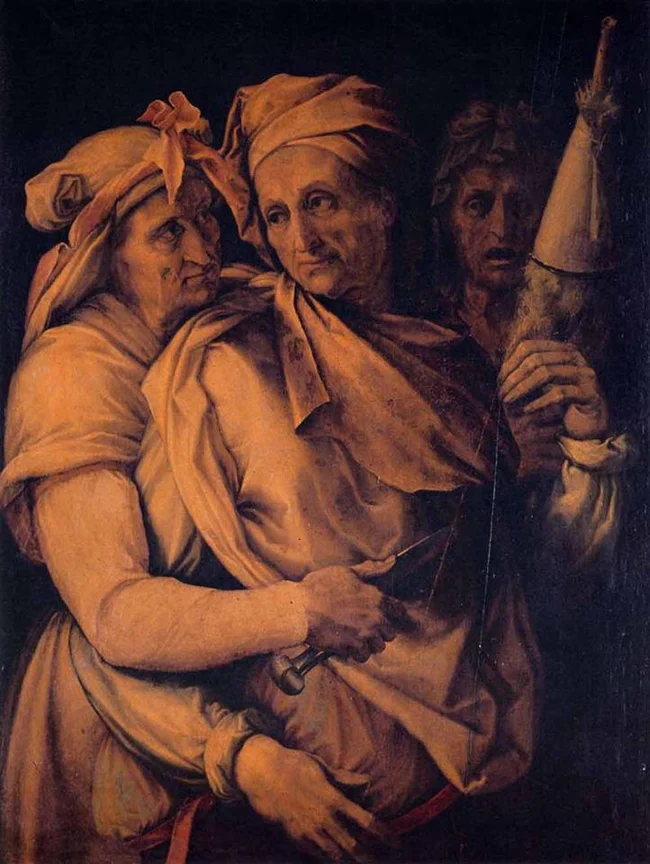
According to one version, the Moirai were the daughters of the primordial Night-Nyx, who arose at the very beginning of creation. They were not a product of the Olympian order—they were part of the original laws of the Universe. They personified that very cosmic order that even the supreme god could not challenge. Zeus could command many things, but he could not reverse the Fates' decree... 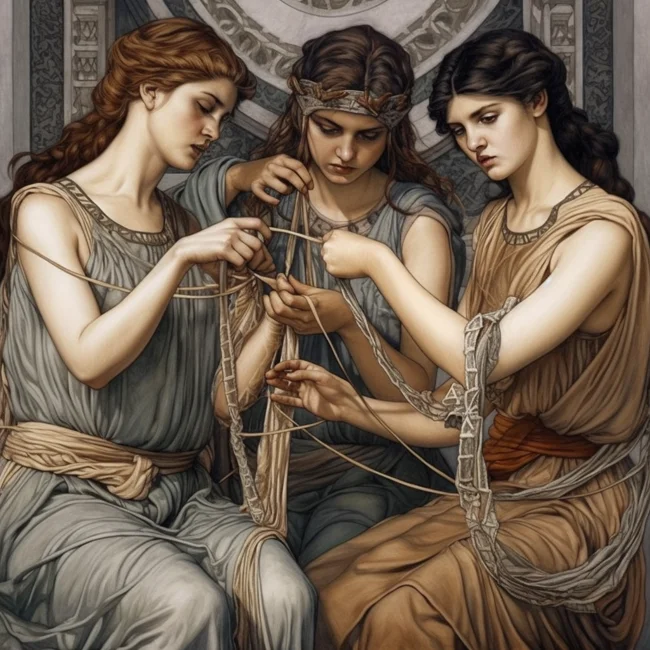
Legends say that Zeus had a special vessel, a pithos, where the fates of human beings were kept (the Fates deposited them there). The Thunderer could pardon and punish, but only within the limits set by Lachesis. He could ask the sisters to extend someone's thread (as in the myth of Selene and Endymion), but the final word always belonged to Atropos.
Imagine his power: he hurled thunder and lightning, but knew that at some point Atropos's scissors would snap for him too. His power was colossal, but not limitless. The Moirai reminded him that there was a force over which he had no control—the force of Fate. 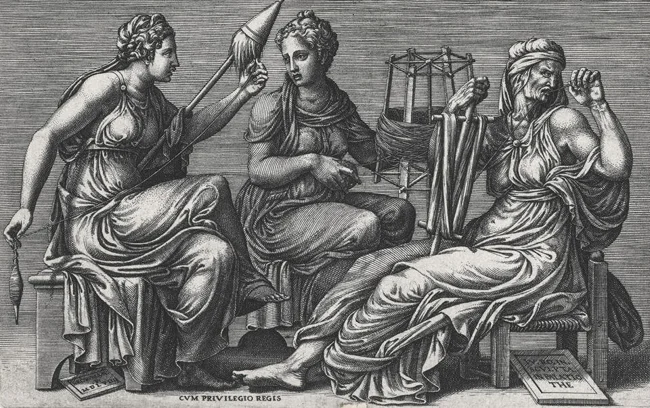
But even the great Moirai could be deceived. In one myth, the cunning Sisyphus (the one who always rolls the stone uphill) managed to cheat death itself. He asked his wife not to perform the funeral rites, and when the god of death, Thanatos, came for him, Sisyphus managed to chain him. For a time, people stopped dying, since Atropos couldn't cut the chains unless Thanatos did his job. However, the gods eventually corrected everything, and the cunning man was cruelly punished. 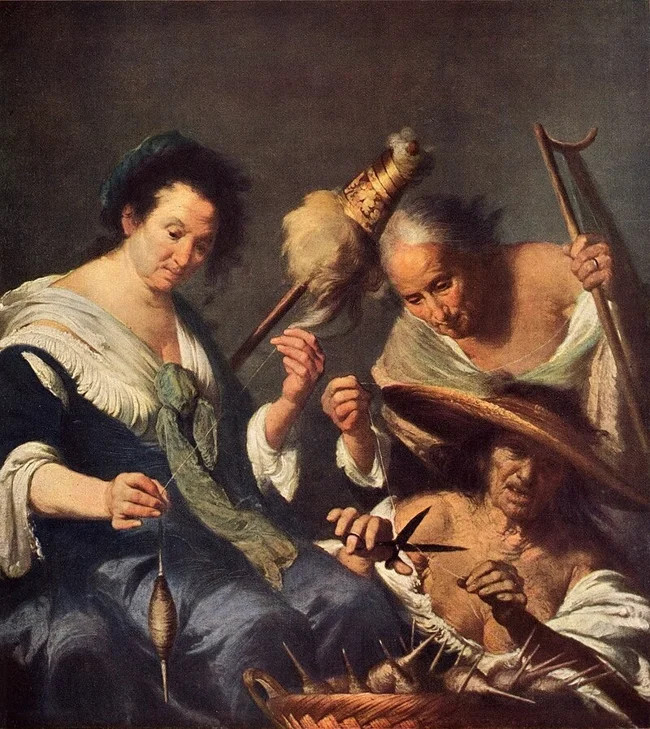
In art, the Moirai were most often depicted as mature or elderly women dressed in long chitons. Their attributes included a distaff, a spindle with thread, and a scroll (symbolizing the Book of Fates). Sometimes Lachesis was depicted with scales to accurately measure out lots. Later, the Moirai acquired a more attractive appearance, typical of the style of a particular artist.
Over time, especially in the classical era, they acquired more human features and even came to be considered advisors to Zeus, helping him maintain world order. But their true form is one of silent, inhuman seriousness. They know neither smiles nor tears. They are neither evil nor kind. They are inexorable. Their work is monotonous, precise, and never stops for a moment. 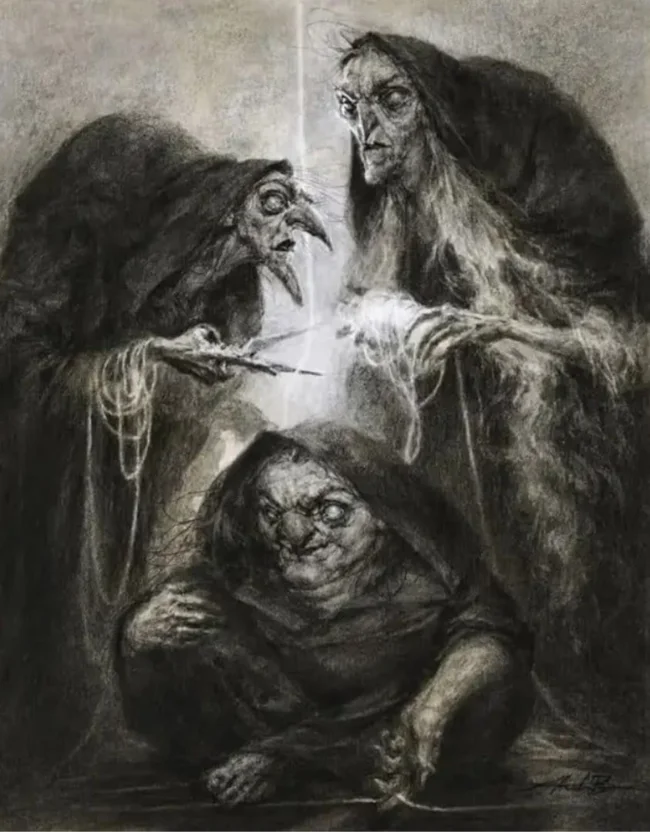
The Moirai embody the idea that everything in this world has its limits, its own law, and its own end. They are a cold, emotionless reminder that even the greatest power is powerless before the dictates of fate. And as long as the universe exists, the three sisters in their long robes continue their eternal work: one spins, another measures, and the third mercilessly cuts... 